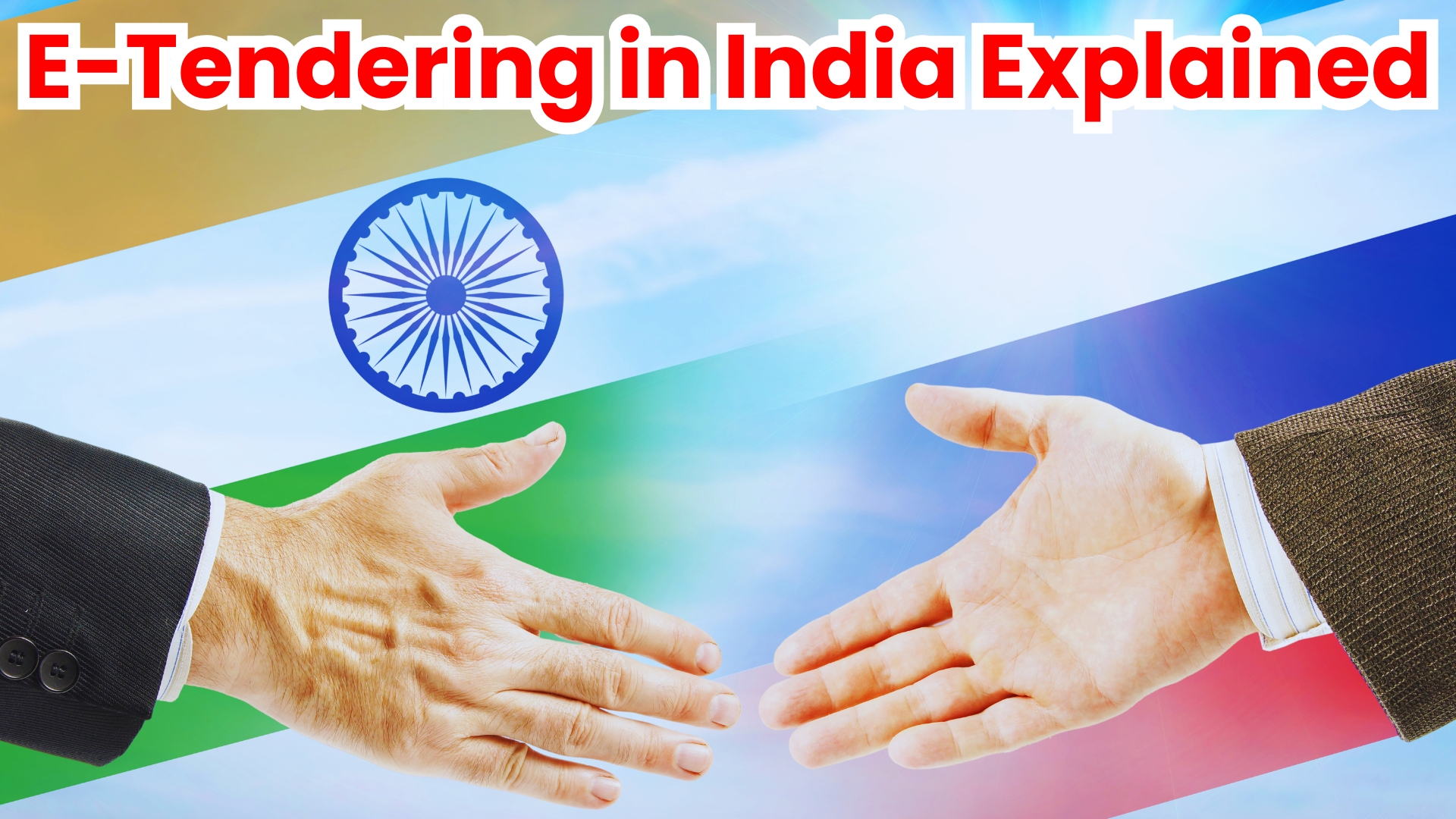E-Tendering in India Explained: Benefits and Best Practices for Digital Bidding

🔍 What is E-Tendering?
E-Tendering refers to the electronic process of publishing, submitting, and evaluating tenders through digital platforms, instead of manual/offline paperwork. It is used by government departments, public sector undertakings (PSUs), and large corporations to procure goods and services from vendors across the country.
Key Features:
- Online tender advertisement and document download
- Digital bid submission via secure portals
- Technical and financial bid evaluations
- Result publication and contract awarding
✅ Top Benefits of E-Tendering for Businesses in India
- Transparency and Fairness: All vendors get equal access to tender information, submission timelines, and evaluation criteria. The use of audit trails and digital logs ensures accountability.
- Lower Costs and Faster Processes: Eliminates the need for physical visits, couriering of documents, and printing costs. Online workflows drastically reduce tender cycle time.
- Wider Reach and Real-Time Access: Thousands of tenders are published daily across:
- Central Public Procurement Portal (CPPP)
- GeM (Government eMarketplace)
- State portals like nProcure, MSTC, Mahatenders
- PSU procurement sites
You can access and apply to tenders across India from a single device.
- Better Compliance and Documentation Control: Digital submissions reduce chances of clerical errors. Most portals allow uploading of standardized documents like PAN, GST, MSME, ISO, etc.
- Equal Opportunity for MSMEs: E-Tendering has democratized bidding. With Udyam registration and NSIC certification, EMD waivers, turnover exemptions, and price preferences are often available to MSMEs.
🖥️ Major E-Tendering Portals in India
Here’s where most digital tenders are published:
| Portal | Scope | Website |
|---|---|---|
| GeM Portal | Central Government procurement of goods & services | gem.gov.in |
| CPPP (eProcure) | Central Ministries & PSUs | etenders.gov.in |
| State Portals | State government works (roads, buildings, etc.) | Varies (e.g., nprocure.com for Gujarat) |
| PSU Portals | ONGC, BHEL, SAIL, etc. | Individual websites |
| Tender Aggregator Portals | Centralized access to thousands of tenders | TenderJunction.in |
🔐 Prerequisites for E-Tender Participation
Before you can bid online, you must have the following:
- Class 3 Digital Signature Certificate (DSC): Used for signing and encrypting tender documents securely.
- Vendor Registration: On GeM, CPPP, or specific PSU/state portals. Registration may include:
- PAN, GST, Udyam Certificate
- ITRs, Financials
- Authorization Letters or OEM Certificates
- Smart Bid Preparation: Prepare digital versions of:
- Technical documents (company profile, work experience, product specs)
- Financial quote (BOQ/price bid)
- Compliance certificates (ISO, MSME, NSIC, etc.)
📌 Best Practices for Successful E-Tendering
- ✅ Regularly Monitor Tender Alerts: Set up daily tender alerts using keywords, categories, and regions relevant to your business. TenderJunction LLP and similar services offer customized notifications.
- ✅ Read Tender Documents Thoroughly: Understand scope of work, eligibility, technical specs, and bid submission instructions. Don’t rush into quoting without full clarity.
- ✅ Ensure Pre-Qualification Readiness: High-value tenders may demand:
- Minimum turnover
- Prior experience
- EMD (unless exempted for MSMEs)
Keep these documents updated and digitized.
- ✅ Submit Before Deadline: Avoid last-minute uploads—portals may face heavy traffic. Submissions are time-stamped.
- ✅ Keep DSC and Login Credentials Safe: Use DSC responsibly. Make sure renewal is done before expiry (validity: 2 years). Maintain strong passwords for portal logins.
- ✅ Participate in Reverse Auctions (RA): On GeM and other portals, RAs allow live bidding to offer your best price. This is especially useful for commodity products and services.
⚠️ Common Mistakes to Avoid
- Incorrect file formats or size limits
- Ignoring mandatory annexures
- Missing compliance documents
- Uploading password-protected files
- Bidding without understanding technical scope
🤔 FAQs on E-Tendering in India
Q1: Is e-Tendering mandatory for government tenders in India?
Yes. Almost all government procurements above Rs. 5 lakhs must be processed digitally via e-Tendering platforms.
Q2: Do I need a Digital Signature Certificate to apply for all tenders?
Yes, a Class 3 DSC is mandatory for participating in most tenders on GeM, CPPP, and state platforms.
Q3: How can MSMEs benefit from e-Tendering?
MSMEs enjoy benefits like EMD waivers, bid relaxation in turnover/experience, and preference under Make in India.
Q4: Can I use one registration for multiple portals?
No. You must register individually on GeM, CPPP, and each state/PSU portal. Some aggregators simplify this process.
Q5: What is the role of consultants like TenderJunction LLP?
They help with portal registrations, bid preparation, documentation, reverse auctions, and daily tender tracking.
📈 Why Digital Bidding is the Future
With India’s ambitious public infrastructure and digital governance goals (Smart Cities, Digital India, Make in India), e-Tendering will remain central to procurement.
For businesses, it’s a cost-effective, scalable, and efficient way to grow. Those who master it today will lead tomorrow.
🚀 Let TenderJunction LLP Help You Excel in E-Tendering
Whether you’re new to digital tendering or looking to improve your success rate, TenderJunction LLP offers:
- Expert Bid Consultants
- GeM and State Portal Registrations
- Customized Tender Alerts
- Document Preparation & Review
- Reverse Auction Training
- End-to-End Submission Support
📞 Call: +91-9898570353
📧 Email: info@tenderjunction.in
🌐 Website: https://tenderjunction.in


